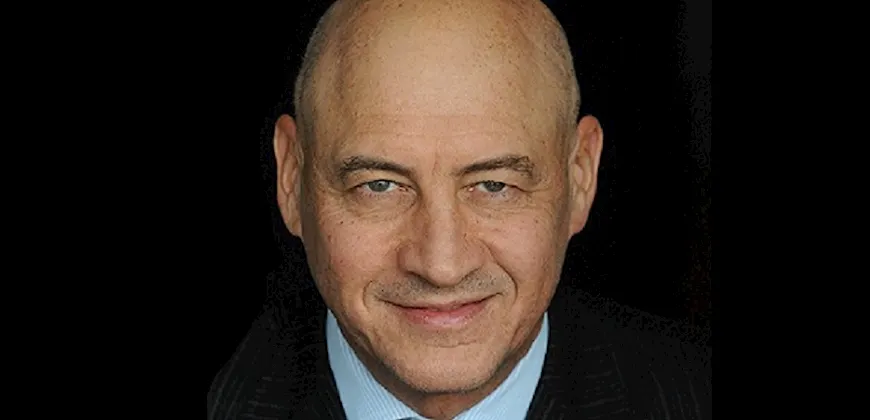Adgar CEO: “We Achieved Twice the Book Value on Land in Toronto — and This Is Just the Beginning”
Industry ExpertiseImportant note: This article is an English translation of the interview published on June 6, 2025 in the the Financial web portal Bizportal (written by By Hatzvi Aharon)
Adgar Investments and Development, which specializes in income-producing real estate in Israel and abroad, currently operates in four countries: Israel, Poland, Canada, and Belgium, with a diversified portfolio that includes office buildings, co-working spaces, and data centers.
In a conversation with CEO Roy Gadish, the company’s growth strategy is revealed: cautious expansion, leveraging existing assets, developing land rights in high-demand areas, and investing in flexible formats such as Brain Embassy—which continues to generate strong cash flow and healthy profits even in times of uncertainty.
Behind the numbers lies a strategy that bridges stability and value creation: On the one hand, assets with long-term, stable tenants—such as government offices, embassies, and banks. On the other, flexible ventures like co-working spaces and the development of data centers in two major hubs: Rosh HaAyin and Poland.
Alongside these efforts, Adgar is advancing a comprehensive urban planning initiative in Toronto, involving the rezoning of land that is expected to yield hundreds of thousands of square meters of residential space.
You operate in four countries. Where is most of your activity concentrated?
Roy Gadish:
“We’re definitely active in several arenas: Israel, Canada, Poland, and Belgium. But Israel is still our home base, representing about 40% of our portfolio. We’ve been active here since 1994.
Over the years we’ve grown, but we’ve always followed a measured approach: geographic diversification that reduces risk, without entering unstable countries. You won’t find us in Africa, Brazil, or Russia. We choose territories that are legally and economically stable. Even in Canada—which is considered a high-ranking country—unexpected events can occur. Look at what happened when an administration like Trump’s suddenly shifted trade policy.
But despite the uncertainty, these are strong economies with infrastructure and resources that allow for long-term planning.”
So what exactly is your core business?
“Our bread and butter is income-generating office properties. We’re not in logistics or industrial real estate. But within the office sector, we’ve developed complementary offerings that add value.
One great example is our coworking brand, Brain Embassy. It’s not a franchise—we built it ourselves, from the ground up. We operate it in our own properties in Warsaw, Belgium, and here in Israel, within the Adgar 360 building in Tel Aviv.”
“In Poland, we’re actually the largest co-working operator—larger than WeWork or Regus. In Tel Aviv, the space spans around 5,000 square meters and it’s fully let. The beauty of this model is how it reduces risk: we make a one-time investment, there’s no need for constant adaptations, and the space remains relevant even as tenants come and go.”
What’s your current occupancy rate across the portfolio?
“In Israel, we’re above 90%. In Belgium and Poland, we’re between 86% and 90%, and in Canada, just over 80%. All in all, the group average stands at around 86% to 87%.
Canada’s still in recovery mode. COVID really disrupted the office market there. In North America, workers are simply more reluctant to return to the office compared to Europe or Israel.”
Who are your typical tenants?
“Our tenant mix is fairly defensive. We lease to embassies, government offices, financial institutions—tenants who tend to sign long-term agreements.
We also cater to freelancers, small businesses, and startups, especially through our Brain Embassy locations.”
“The advantage is flexibility. They can rent a unit without needing us to customise it. It’s a low-risk model—we’re not having to reinvest for every new tenant.
Tenant turnover doesn’t burden us, and we avoid unnecessary fit-out costs. It’s quite different from dealing with a big tech firm where you might build out a bespoke space for five years, only for them to leave early—at which point your entire investment evaporates.”
Where do you see growth coming from?
“Our main growth engine at the moment is land in Toronto, especially in the Liberty Village area. It’s a substantial site with huge potential for adding building rights. We’re already in discussions with the city, and a new subway station is being built right next to the site. We’ve even been compensated at double the book value for one expropriated parcel of land—so that’s a solid indicator of the upside ahead.”
“Another offering in our portfolio is data centres. We’re currently building a 16-megawatt ground-based facility in Petah Tikva, next to tour existing Adgar Tower.
The plot was originally zoned for offices, but we’ve scaled that back and pivoted toward data infrastructure. It’s a sector that’s growing rapidly worldwide, and we want to be part of it.”
Where do you see the company five years from now?
“We’ll be larger, stronger, but still focused. We’ll stick to our strategy: quality offices, development where there’s real upside, and expansion in high-growth areas like data centres and Brain Embassy. We may add one or two new countries to the map, but we’ll stay true to our conservative and disciplined approach.”
Market Cap, Equity, and Share Performance
The company currently has a market capitalization of approximately 758 million shekels, while its equity stands at around 1.42 billion shekels. Since the beginning of the year, the stock has declined by about 21%, but over the past 12 months, it has risen by approximately 3.8%. This suggests the company is trading at a deep discount of around 47% to its book value. it’s worth noting that Adgar has been trading at a significant discount for quite some time—this isn’t a new phenomenon.
For more information about Adgar’s stock and performance visit the TASE company page here.
